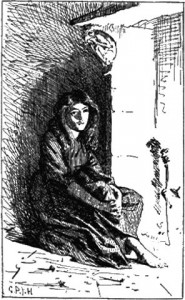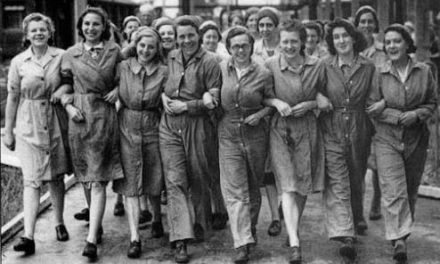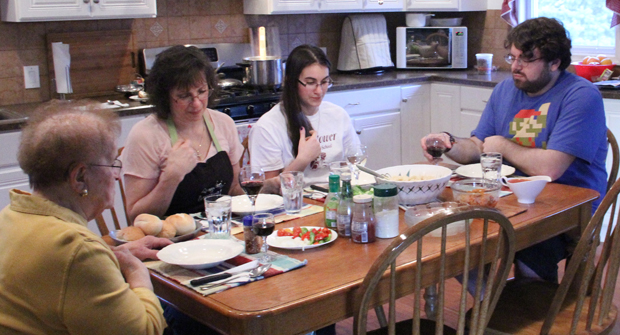My daughter was still in utero when I vowed that she would never see a princess movie. I found the genre replete with problems, particularly Disney’s version which I associated with pretty little things with eyes bigger than their waists, whose beauty was (with a few exceptions) far superior to their virtue. I hated the way princesses captivated the imagination of young girls and made them forget that they could also be painters and astronauts and engineers. But most of all, I felt that princess movies, particularly Disney’s, did little to captivate the moral imagination of young girls, that is, to elevate their souls towards recognizing the oneness of truth, goodness, and beauty. For almost three years, I kept my promise. My daughter saw no movies, particularly no princess movies.
My idyllic little non-princess world fell apart when, just shy of her third birthday, my daughter saw Frozen at a cousin’s house. She instantly seemed to memorize “Let It Go,” a song which fulfilled my worst nightmare of encouraging my daughter to cast off the yolk of convention and authority, to blaze her own trail, and to choose isolation over relationship. I know lots of people said that Frozen wasn’t the typical princess movie but I disagree. Yes, the love between sisters is a nice plot line, but I found Hans’ betrayal really distasteful, especially for a young audience that doesn’t need to be conditioned to see handsome men as murderous beasts. My bigger problem with the movie was Elsa’s transformation, which I found too tidy and too close to the end of the movie. I lifetime of isolation and loneliness does not end in a moment. Nor can we so easily dismiss the bad and dangerous things she did in the past, even when we know that those things were not done out of malice. Not to mention the scandalously tiny figures of both our protagonists.
But the purpose of this post is not to talk so much about Frozen, though I would be happy to flesh out my concerns more in the comments, as it is to sing the praises of Cinderella. I decided to take my daughter after reading Fr. Robert Barron’s review, and the movie far exceeded my expectations.
Cinderella’s mother instills in her the two virtues of kindness and courage. We see in Cinderella’s character how these two characteristics function as virtues. Adversity, of which Cinderella has plenty, does not destroy either her kindness or her courage. These strengths endure despite her circumstances. Moreover, these virtues function to make her an agent. Rather than passively accepting her situation, dire as it is, Cinderella is able to see the world “not as it is, but as it should be.” She is able to find joy in the good things that surround her—the beauty of nature and the goodness of her animal friends especially.
Cinderella is as beautiful as she is good. While I found her character stunningly beautiful, Cinderella isn’t gaunt, nor is her body completely unrealistic. More importantly, the movie makes clear that her beauty is only secondary to her virtue. The prince notices her not only because she is beautiful but because she is trying to stop him from killing a stag (another jewel in the crown for this vegetarian heart of mine). The prince is captivated by her not only because she is beautiful but also because she captivates his moral imagination. She tells him, “Just because it is done does not mean that it should be done.” He uses this lesson to justify his own desire to marry her to his father who wants him to “marry up” to a princess from a larger kingdom.
I just loved the love story in the movie. Rather than passively waiting for a savior, the movie portrays Cinderella and the prince as equals and Cinderella as an active agent in her own happy ending. At the end of the movie, she asks the prince if he will, no matter what, take her for what she is, not what she appears. He loves her for her character, for who she is, and she loves him the same in return. The movie leaves us with little doubt over the fate of the kingdom with two such virtuous rulers.
Finally, I loved how Cinderella forgives. The movie shows us that forgiveness, and really all kindness, is an act of courage. It is about envisioning the world not as it is, but how it could be. The movie does not allow us to dismiss the stepmother’s wickedness, nor does Cinderella overlook the vice of her stepmother, but by forgiving her, she points forward to what her stepmother and stepsisters might become after they have witnessed Cinderella’s transformation and experienced the power of her forgiveness. The stepmother is, in some ways, a sympathetic character, but her grief causes her to make bad—actually, wicked—decisions, decisions that in turn form her character to become more and more wicked. Unlike Frozen’s Elsa whose life of isolation and violence ends in an instant, Cinderella makes it clear that even if the stepmother is forgivable, there is no way she can suddenly start being good in an instant. In Cinderella, character endures.
For months now, my daughter has pretended to be Elsa. It always makes me feel uncomfortable because I don’t really know what in Elsa she is emulating. I worry about the parts of Elsa’s character that she finds attractive. But today after the movie she told me that she wants to be Cinderella. And that doesn’t worry me at all.






Great post Beth. I have four daughters and so think about the morality of movies like these all the time. I did not like Into the Woods, which is basically a historiagraphical apologetic for postmodernity. Frozen was better, but as your post alludes to, it seems that the new trend is to portray the male characters as villains or as unrelated to the thriving and success of the main female character. This is of course an overreaction against the older Disney movies. Have you seen Malificent, for example? I would prefer it if childrens’ movies did not inculcate the children who watch them with negative attitudes and presuppositions about either sex. My second daughter’s birthday is coming up, so maybe I’ll take her to see the new Cinderella!
Thanks for this post – I want to see Cinderella and just haven’t had a chance. I would be curious Beth to see what you think of ABC’s Once Upon a Time, a grown up scripted fairy tale that combines all of the stories and complicates all of them. (It is currently one of my favorite TV shows).
While I don’t agree with you on Frozen, I’m mostly commenting because I want to challenge Andrew’s comment on Maleficent (and to a lesser extent your objection to Hans betrayal in Frozen). It appears as if you would like children’s movies to have no interpersonal strife at all. While Maleficent is not a movie for small children, it does precisely what fairytales are intended to do – begin to deal with the reality of violence against women and girls by individuals and structures that do not understand them, do not value them, and wish to control them. It presents a much more complex and deep story than the original (which was my favorite growing up) –
I take serious objection to your statement: “ it seems that the new trend is to portray the male characters as villains or as unrelated to the thriving and success of the main female character. This is of course an overreaction against the older Disney movies.”
Over reaction? Are men never villains? Why must a female character’s thriving and success rest on male characters? If we apply the Béchamel test (even to children’s movies) we find that most movies do not tie male character’s thriving and success to female characters. Children’s movies aimed at boys almost always leave girls out entirely or they are pure accessories or love interests.
Hans betrayal is not unrealistic and it is dangerous for a young lady like Anna to 1. Be so isolated from the outside world such that she naively trusts someone she barely knows and 2. Such trust and manipulation is catastrophic for girls around the globe. (Pretending there are no such villains – or there are no villains at all inculcates another type of Maleficent and the cutting of her wings offers one of the only age appropriate things I’ve seen that takes seriously violence against women in a way that could be a conversation with an eleven year old.
I hear and agree with Beth’s discomfort with the “Princess Culture” completely. But to present these films as if they are swinging the pendulum too far in the other direction so as to be unfair to men is something I find outrageous given the reality of the world in which we live.
Hi Meg,
I can’t speak for Andrew but I definitely don’t mind there being strife and villains in children’s stories. My daughter and I read lots of fairy tales and evil characters (I am thinking especially of the witch in Snow White) give us opportunities to talk about the real dangers in the world and important principles like not taking food from strangers without permission. But I still didn’t like the way Frozen dealt with Hans. First of all, he is way too sincere at the beginning of the movie. A first time viewer has no sense of foreshadowing, no sense of knowing that he is dangerous. But the biggest problem is that after Hans’ betrayal and after Anna is crushed after her first experience of true love turns out to be not only misguided but also dangerous, she immediately bounces back and realizes she is in love with Kristoff. Within minutes of being betrayed and left to die, she is off in the storm again to find a kiss from another man. It is more that movie warps love, not that it unfairly portrays men.
Beth argued that “a young audience…doesn’t need to be conditioned to see handsome men as murderous beasts.” I agree with that, which is why I stated that “I would prefer it if childrens’ movies did not inculcate the children who watch them with negative attitudes and presuppositions about either sex.” Beth also said that she loved the new Cinderella because “the movie portrays Cinderella and the prince as equals and Cinderella as an active agent in her own happy ending.” I like this also. Never did I say that a “female character’s thriving and success [must] rest on male characters.” From Beth’s description, it sounds like the new Cinderella movie manages to depict the male character as contributing to Cinderella’s flourishing and her to his. I find this to be a nice middle position between the extreme view of earlier Disney films where the female’s happiness rests on male characters and the other extreme where men are threats to female happiness or, at best, peripheral to it. I am aware that in real life some men are villains. I don’t think that means we need to condition young girls to be mistrustful of men in general. I thought this was a point Beth’s original post was making also, but perhaps I misunderstood.
Finally, we are talking about Cinderella! Yes, Andrew, you put my thoughts on the movie well. I think Cinderella is an awesome female protagonist. She is certainly not naive. She knows that her stepmother and stepsister are, to use her father’s word, “trying,” and yet she is also committed to treating them with love and respect insofar as she is able. Her power as an agent is so clear in her treatment of them. And then I also just loved the initial scene when she meets the prince. Cinderella is so powerful and brave. She has every virtue that a woman–or a man–would want to have. And this is why the relationship with the prince is so successful from the start. He makes Cinderella happy, but it isn’t like she needs him to be happy (which you see at the end of the movie). I would contrast her in this way with the very naive Anna who is so desperate to fall in love that she fails to see reason.
Thanks for this, Beth. My wife and I have had the same attitude about princess movies as you describe yourself having in your initial paragraph. We saw Cinderella yesterday with our two daughters, and afterwards our reaction to it was very similar to what you have articulated very accurately and well here.